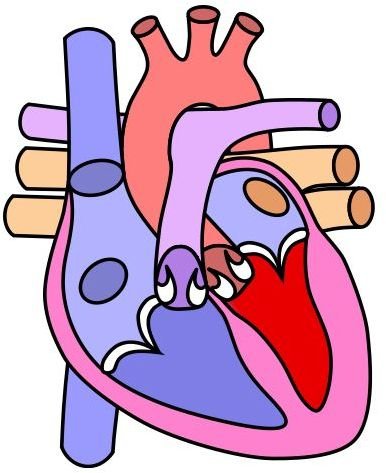Infant Heart Murmur: Diagnosis and What They Mean
A heart murmur is simply defined as a noise that can be heard in between heart beats. In most cases, murmurs are considered innocent and will not affect the health of the infant, but any murmur occurring during the first six months of life must be evaluated immediately by a pediatric cardiologist because they could possibly indicate a serious cardiovascular problem. Infant heart murmurs have been found to affect 1.7 percent of infants in early infancy, and 7 percent of infants between six and twelve months of age in a study presented in the Official Journal of the American Academy of Pediatrics. This study was a rather small study, so the incidence could be much higher. Some pediatric oncologists at Cincinnati Children’s Hospital go as far as to estimate that up to 90 percent of infants and children seven years of age and younger have an audible innocent heart murmur.
What Does Normal Heart Murmur Mean?
Murmurs are most often diagnosed as functional, harmless, innocent or normal. The sound can be produced by a number of things, such as an overactive thyroid, anemia, or a structural issue that does not affect how the heart functions. When they become problematic, the cause could be something serious, such as septal defects or patent ductus arteriosus.
Diagnosing and Evaluating
An infant heart murmur needs to be evaluated to determine whether it is normal or not. First, the doctor will check the infant’s blood pressure and pulse, and will carefully listen to the infant’s heart using a stethoscope. As the doctor is listening, she will determine:
- When the murmur happens in the heartbeat cycle
- How loud it is
- Where the murmur is in the heart
- What kind of noise it is
- Whether the noise changes when the infant moves or changes position
If the doctor determines that the child has a normal murmur, there is nothing to worry about. If the doctor is not sure, she will have the infant evaluated by a pediatric cardiologist. A pediatric cardiologist will order a variety of tests to thoroughly evaluate the murmur and make a definitive diagnosis. These tests include:
- Chest x-ray
- Electrocardiogram
- Ultrasound
Treatment
If the murmur is normal or innocent, treatment is not necessary. Treatment for murmurs that are not innocent or normal will depend on the cause. Surgery is common for severe issues. For less severe issues, certain medications may be sufficient. If a mitral valve prolapse is the cause, periodic checkups may be enough and the infant may not need any additional treatment. In some cases, antibiotics may help. Anti-clotting medications, also referred to as anticoagulants, may control palpitations, irregular heartbeat and help in opening the blood vessels. This type of medication is sometimes used after surgical procedures to treat the cause of murmurs.
Resources
Cincinnati Children’s Hospital. (2010). Heart Murmurs. Retrieved on August 24, 2010 from Cincinnato Children’s Hospital: https://www.cincinnatichildrens.org/health/heart-encyclopedia/signs/murmurs.htm
Official Journal of the American Academy of Pediatrics. (1955). Frequency and Significance of Cardiac Murmurs in the First Year of Life. Retrieved on August 24, 2010 from the American Academy of Pediatrics: https://pediatrics.aappublications.org/cgi/content/abstract/15/2/169
Image Credits
Heart: Dake/Madhero88 – Wikimedia Commons
